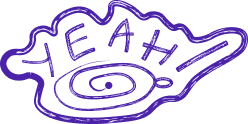🌍 All
About us
Digitalization
News
Startups
Development
Design
5 reasons to start every project with a kick-off meeting
Michał Merchelski
Nov 29, 2018・5 min read
Table of Content
The common denominator: kick-off meeting
Having worked on several development projects as part of a remote product team taking care of everything from design to AppStore launches, I’ve had numerous occasions to see that, indeed, sometimes you win and sometimes you learn.
One of the lessons was: a kick-off meeting is a must!
Every project is different when you work at a software house. No surprise here. Some of them are like a brand new highway at sunset (yeah, right...), others are way more bumpy (yep, sounds more like it). The bumpy projects might not be pleasant when you're trying to put out a fire from inside the house, but they have a lot to offer in educational terms.

The common denominator: kick-off meeting
I've been trying to identify the source of the problem among the bumpiest of my projects and I've finally had the “a-ha” moment recently. It was about the kick-off. The most significant red flag connecting all those dirty little projects keeping me awake.
There was no kick-off meeting on any of them. And that was da mistake, an arrow to the knee right at the starting line. All the projects with a proper kick-off went way more smoothly from the very beginning. Of course, there were some problems in the end, but at least we hit the ground running and the client felt involved and co-responsible for the outcome.
Without further ado, I present you the 5 reasons you should always push your team and your client for an in-person kick-off meeting at the beginning of every single project.
DISCLAIMER: By a kick-off, I mean an all-day workshop with the whole team - design, devs, PM, QA, project owner/client, etc. Basically, everyone involved in the project should participate.
1. A team that trusts is a team that triumphs
We all know how rapid, hectic and competitive the digital business gets. Lead, call, NDA, estimate, meeting (maybe), contract, GO. There is little time to really get to know the other side. It's almost impossible to get their trust as most of your credibility comes from your portfolio.
And as digital as the digital industry might be, humans are still humans. We are social creatures, we are guided by our feelings and we don't want to get into business with random, shady people.
The kick-off is a great opportunity to win the client's trust and get them on board with your methods, ideas and approach. It's your chance to become their partner in crime. Trivial as it may sound, a dinner (and some beers) after a whole day of hard work towards a common goal is a seriously bonding experience.
Remember, at the end of the day, your client wants to go to bed with a piece of mind (or at least less horror). They want to know that they picked the right guy to be in their corner. Delivering results is not everything when you invest your own money.
2. Establishing rules of engagement
Moving on to more practical aspects of project work, a kick-off is when all ground rules for further collaboration should be established. It's the moment you should clearly outline the competence of both sides and figure out communication patterns.
This is when you should explain the processes, timelines, feedback loops and expectations regarding day-to-day collaboration. Get your client involved in the sprint planning process, they'll feel more in control and be more understanding when things go south.
You should make sure that the client is OK with all the sprints, scrums, standups, daily Slack updates or whatever practices your team has in place and that she understands the purpose of each.
If your team uses Jira, you should show your client how Jira works, if you use Zeplin, show them how to add comments in Zeplin. Get the picture? Even if they claim to be familiar with a tool, you should see how they use it, and make sure they know it well enough to fit into your process.
It's like explaining your homecourt rules to the new kid on the block.
3. Building a dictionary
If you're at a kick-off, you've probably already done some design work and know the scope of the product.
Now is the time when you make sure that everyone on the team knows what you know and, most of all, what the client knows!
I've gone through some serious quagmires because of miscommunication and semantics. Trust me, it might seem boring, but going through wireframes with everyone and naming every view and every component of the application is worth every second.
Literally, make a dictionary if needed. Otherwise, you risk being bamboozled when your client decides to refer to a question form as "Modular part".
4. Non-verbal communication
This is a pretty subtle and sensitive matter but spending a whole day with someone can give you a really good picture of his habits, communication approach and how they react to feedback or discussion.
If you work with international customers, always do your homework. Check what are the cultural, especially business-related, traits of the nation you're going to work with. Read a little, ask around, and verify on the kick-off if they are what they are said to be.
There are a lot of subtle intricacies when it comes to customs and workplace etiquette worldwide and you should know who you're getting in bed with. Be prepared.
Pro-tip: Some nations won't tell you outright that you screwed up, your self-reflection is the key to a happy relationship here.
5. The spark
Last lesson for today: it's easier to keep the train going than it is to get it moving in the first place. #kindergartenphysics
If you run the kick-off right, the whole team should be on fire right after. The feeling of starting something new, working as a team and creating valuable products usually gets people going. They are in the room because they want to do cool stuff and all they need is a spark to get their engines revving.
If you're a real hotshot, you can end the workshop with a pep talk (Coach Carter- or Braveheart-style), but a short and loud "Let's do this!" followed with some applause will do.
The point here is: the kick-off is like a GO signal for the whole team, they just start running, the train starts rolling, and all you need to do is keep the momentum throughout the whole project. It's much more effective than trying to push-start everyone individually.
I mean, if they work remotely, there's only so much you can do. Being there in person makes life a lot easier.
---
Do you have similar experiences? Or think otherwise? Feel free to comment on your experience with kick-off meetings! Drop us a line: hello@start-up.house.


 Don't miss a beat - subscribe to our newsletter
Don't miss a beat - subscribe to our newsletterYou may also  like...
like...

Understanding the Core Differences: Agile vs. Waterfall Testing Explained
Explore the fundamental differences between Agile and Waterfall testing. This guide explains how these methodologies shape software development, testing processes, and project efficiency.
Marek Pałys
Aug 06, 2024・5 min read

Understanding the Distinct Roles: Scrum Master vs Product Owner
Scrum Master and Product Owner roles are integral to Agile projects but serve different purposes. This guide explains their distinct responsibilities, skills, and collaborative dynamics.
Marek Pałys
Dec 09, 2024・8 min read

Understanding T&M Contract Management in Agile Projects: A Practical Guide
Time and Materials (T&M) contracts align seamlessly with Agile methodologies by providing flexibility and adaptability in evolving project scopes. This guide explores how to manage T&M contracts effectively, covering key elements, risks, and best practices to ensure success in Agile projects.
Alexander Stasiak
Dec 09, 2024・13 min read
